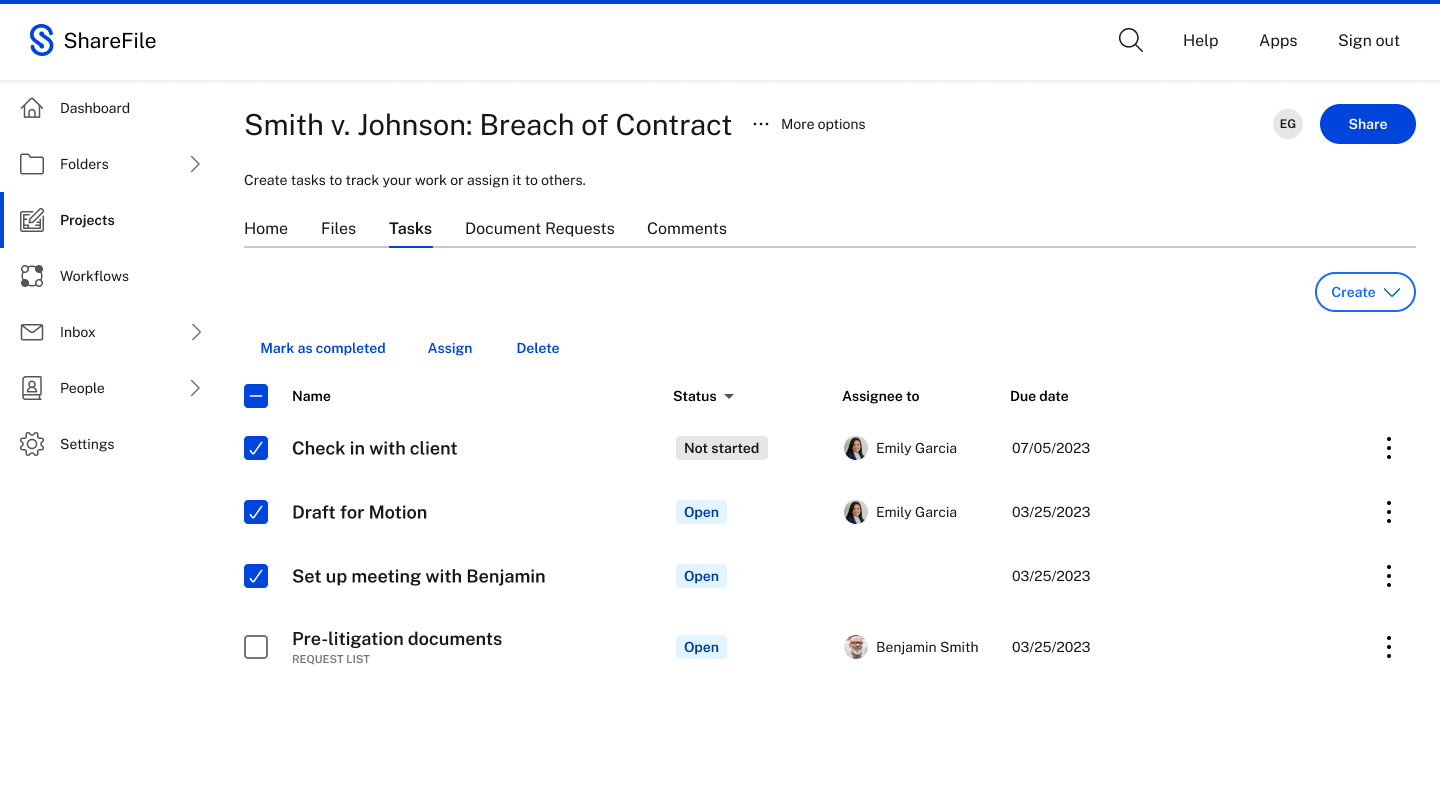In 2016, I wrote a review of ShareFile in which I called it one of the best products on the market for secure document storage and sharing by law firms. But then there came a period when ShareFile seemed to go quiet, at least in the legal market, with little outward evidence that it was making any effort to market or sell to lawyers.
This may have been at least partly attributable to the company’s acquisition and restructuring. Earlier this year, Citrix, the company that has owned ShareFile since acquiring it in 2011, was itself acquired by the private equity firms Vista Equity Partners and Evergreen Coast Capital. They brought Citrix under the umbrella of the new Cloud Software Group, together with the companies BI Incorporated and Tibco, and then divided the resulting group into three business units, of which ShareFile is one.
Now, ShareFile is again setting its sights on expanding within the legal market — and specifically among small and midsized firms. This week, it unveiled ShareFile for Legal, which it describes as “a secure, collaborative client experience solution that allows law firms to create unparalleled client experiences.”
When I reviewed ShareFile in 2016, the product was primarily a cloud-based file storage, file synchronization and file-sharing platform that had the added advantage of sending encrypted files and emails either from the cloud or directly from Microsoft Outlook. Compared to options such as Dropbox or Box, it was highly secure and easy to use.
In that regard, the “new” ShareFile has not changed — or at least it appears not to have changed, as I have not yet tested this new version.
But what has changed is that ShareFile has added new features designed to address some of the broader client and document workflow issues law firms face on a routine basis. It also adds enhanced security protections.
According to ShareFile’s announcement this week, features of ShareFile for Legal include:
- Security threat detection alerts. ShareFile now delivers alerts regarding security threats to your client documents with suggested actions for mitigating them. This enables law firm employees and administrators to mitigate security risks even without an IT department, ShareFile says.
- Task Management. ShareFile now allows law firm users to assign tasks to help ensure that specific documents are provided automatically, without the use of email. This includes task tracking, to track the status of tasks related to client matters, and client updates, by which firms can provide and manage updates to clients specific to their matters.
- Native integrations with QuickBooks and Salesforce. ShareFile now integrates with Salesforce and QuickBooks, reducing manual entry of client data by synchronizing with those applications.
ShareFile says it also made a number of enhancements earlier this year related to law firms, including expedited client onboarding, secure document management and collaboration, and automated workflows.
With these added features, ShareFile takes on the features of a client portal — and, in fact, it describes itself as that in a recent blog post, saying:
“ShareFile is [an] ideal way for clients to communicate with you and your team remotely. Clients can onboard, sign service agreements, upload and download documents, track tasks and service progress, edit documents, review and sign contracts with unlimited e-signatures, ask and answer questions, and much more.”
Although I have not yet had the opportunity to try out this new ShareFile for Legal, I hope to do so in the near future and write a follow-up to this post.
Also, I will be working with them to produce a How It Works video in the near future, so you will be able to see for yourselves some of these new features. Stay tuned for that.
As for pricing, the features described above are in the ShareFile premium plan, which is $125 a month for five users. Other plans start at $50 a month.
 Robert Ambrogi Blog
Robert Ambrogi Blog